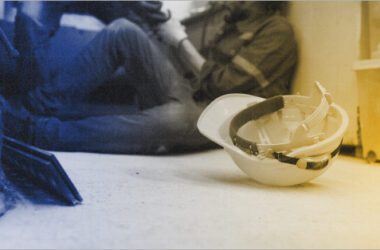Over 80K+ vehicles were recalled to inspect and replace a possible steering system defect by the country’s largest automaker. In an exchange filing, the company said the defect is suspected to be in a part of the steering tie rod, which can break in rare cases and affect steering and handling.
Entrepreneurs are always looking for ways to minimise risks and protect their businesses. The truth is, no matter how careful you are or how high the quality of your products might be, accidents or damages related to your products can still happen. That’s where Product Liability Insurance comes in handy! In this blog post, we will explore what Product Liability Insurance is and why every business should have it as a crucial part of their risk management strategy.
Let’s start with the basics then!
Product Liability Insurance Meaning
Simply put, Product Liability Insurance provides protection for businesses against claims arising from injuries or damages caused by their products. With this insurance coverage by your side, your business remains protected from claims or lawsuits resulting from bodily harm or property damage caused to a user, by defective items manufactured, distributed, or sold by your business.
This insurance coverage seeks to indemnify the insured against his legal liability to pay compensation (including claimants’ costs, fees and expenses) in respect of injury or damage to third parties and for claims mentioned above.
The following factors are considered in determining the amount of indemnity granted:
- The term “injury” shall refer to death, bodily injury, illness, or disease.
- Any damage to the atmosphere, water, land, or other tangibles is considered damage.
- Water, land, or other tangible properties can be contaminated by pollution or pollution in the atmosphere.
- A product is any tangible property designed, formulated, manufactured, installed, sold, distributed, treated, modified, or repaired by the insured after it has left its custody or control.
- Accidents are sudden, unexpected and unintentional events, including continuous or repeated exposures resulting from the same incident.
The Idea of ‘Product Damages or Injuries’ – Product Defect Coverage
A ‘product,’ in the context of Product Liability Insurance, can be almost any type of good sold to businesses or customers. It may range from food and clothing to specialized items such as machines and medications. Restaurant food, for example, can make someone sick. A small toy that has not been properly labelled may pose a choking hazard to a toddler. A computer purchased from the authorised store of a business may overheat and harm the user. A recently repaired mower may malfunction and injure the user. All of these incidents can be viewed as potential liabilities for the business in question.
A product may lead to physical harm or damage, as a result of one or more of the following:
- Defects in the product.
- Flaws in the design.
- Instructions, labels, and warnings are not adequate.
Anyone who comes into contact with your product (including the buyer, users, or even a bystander) and incurs injuries or damages may be considered an injured third party.
The Difference Between Product Liability Insurance and General Liability Insurance in Respect of Product Defect Coverage
In many ways, Product Insurance is similar to general liability insurance. Product liability coverage is typically included in a general liability insurance policy. Businesses facing higher risks, on the other hand, may need to increase their limits or obtain additional coverage. Therefore, Product Insurance can be thought of as a distinct type of insurance designed specifically for businesses that manufacture and sell products.
Product Insurance covers claims arising from the use of goods manufactured, sold or distributed by a company. A general liability policy, on the contrary, will cover claims in relation to the overall operations of a business. For example, if a partner or client visits your company premises and injures himself, general liability insurance would cover this.
Another important aspect of Product Insurance coverage is that you are not covered if your product fails to function completely. Product Insurance protects you against claims that a flaw or poor design in your product induces bodily harm or property damage to a third party. Such claims can be difficult to understand at times. This is due to the fact that a flaw can appear at any stage of your product’s development, from design to manufacturing and distribution.
Product Liability Insurance typically covers claims originating from-
- Design flaws- claims related to product issues that existed before the product was manufactured.
- Manufacturing flaws- claims relating to flaws that occurred during the creation or assembly of the product.
- Flaws in warning or use – claims that the seller failed to provide appropriate warnings or labels about proper use and possible hazards
- Strict liability – claims based on the legal responsibility of a manufacturer or seller for any injury or harm caused to a consumer by a defective product, regardless of whether or not the manufacturer or seller was negligent in producing or selling the product.
A typical manufacturer liability insurance policy in India will cover you in the following scenarios –
- Injury
Assume a forklift made by your company crumbles and injures a worker. Legal fees and claim settlements that may be incurred here are covered by your policy.
- Property damage
Assume that a remote-controlled item sold by your company fails and the battery explodes, ruining a customer’s carpet. In this case, your Product Insurance will cover expenses incurred towards legal fees and settlements.
- Illness
Assume your supermarket sold expired cheese, which caused a consumer to become ill after eating it. Such claims will be covered by Product Insurance.
- Wrongful death
Assume once more that a forklift sold by your business malfunctions, resulting in a fatal accident. Here, your Product Liability Insurance may cover not only the legal expenses but also burial expenses and other costs associated with the death caused by your defective product.
What Does Product Liability Insurance Not Cover?
- Repair, reconditioning, modification, or replacement of any defective part of any product is not covered by the policy.
- Any costs incurred for the recall of a product or part of a product.
- Products incorporated into aircraft structures, machines, or controls.
- Intentional or deliberate noncompliance with a statutory provision.
- Intentional or deliberate violation of a statutory provision.
- Damages resulting from fines, penalties, punitive actions, and exemplary actions.
- Intentionally or deliberately disregarding the need to take all reasonable steps to prevent claims by the insured’s technical or administrative management.
- Any injury to any person under the purview of a contract of employment or apprenticeship with the insured.
- Products or goods that fail to fulfil their intended purpose.
- Nuclear exclusions
- War Perils
Product Defect & Product Liability Insurance Need in India
Product Liability Insurance is essential for various entities in India, including businesses, manufacturers, pharmaceutical companies, and even hospitals. This insurance is obtained by individuals or enterprises to mitigate legal and financial liabilities that may arise from their products.
For example, consider a scenario where a company faces a lawsuit due to the sale of defective products, resulting in harm to users or other goods. In such cases, having Product Liability Insurance Policy ensures that the insurance provider covers the ensuing legal expenses.
This type of insurance is particularly crucial for industries such as chemical manufacturing, pharmaceuticals, tobacco, food and beverages, and entertainment. While not mandatory, it is highly relevant for certain sectors. If you operate within these industries, acquiring Product Liability Insurance Policy is imperative to safeguard against potential risks.
The Footnote:
If you own a business or work in the ‘field’ of business in any manner, you are probably aware of how the insurance industry assists businesses in risk management. Insurance serves as a safety net, protecting the insured from a wide range of potential risks and so does Product Liability Insurance. We hope the preceding discussion has helped you understand what Product Liability Insurance is, why you need it, and what it includes and excludes. We also talked about some other important issues concerning Product Liability Insurance. With this policy, business owners like you can have absolute peace of mind, knowing that they are covered if something goes wrong with one of their products.
For the best recommendation on Product Liability Insurance Policies, you may contact BimaKavach. Here, you can get the best recommendation for any insurance product in just 5 minutes.
Frequently Asked Questions
- In India, is insurance for product liability mandatory?
No, it is not. You are not required to carry liability insurance unless your business involves a hazardous environment, as defined by the Environmental Protection Act of 1986. But it is always good to have a liability insurance policy.
2. Does defective product insurance cover contractual liabilities?
A product liability policy does not cover contractual liabilities.
3. Are product liability policies available with add-on covers?
You can purchase add-on coverage that offers compensation for named and unnamed vendors, countries with different laws, etc.
Get the best quotes for Product Liability Insurance Policy from top insurers at BimaKavach








